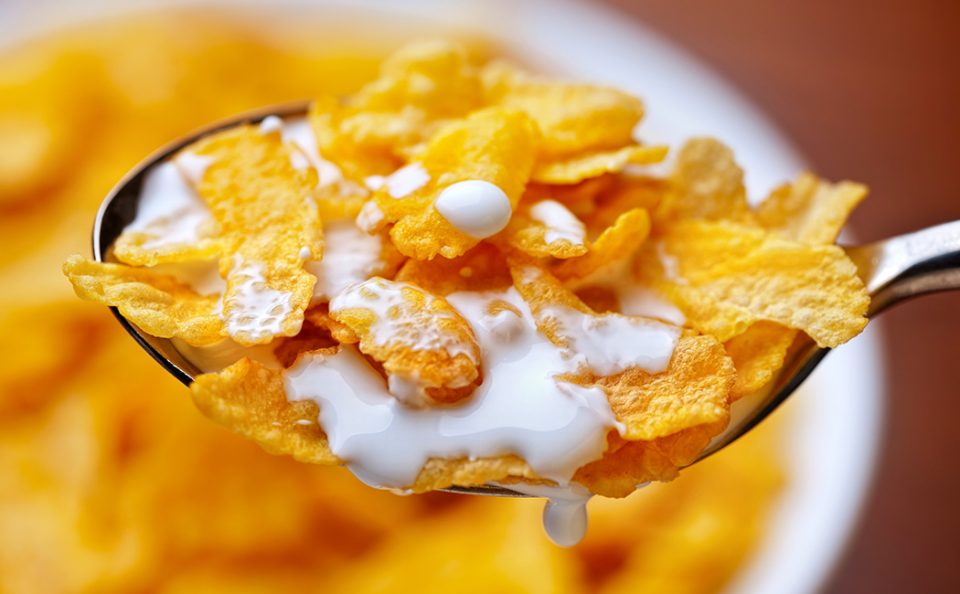As a child, a teenager and an adult I ate boxes of Rice Krispies, Corn Flakes, Bran Flakes, Frosties, All-Bran, muesli, and Porridge Oats. These products are sold to us as ‘the healthiest way to start our day’.
But, what are they made of, and what are the ingredients in a box of Corn Flakes for example. How many grams of protein or added sugar and salt are in each serving size?
The global breakfast cereal market is huge. Expected to reach $55bn a year in sales by 2025. Can we expect to see a correlation in diabetes, metabolic disease, and obesity growth? Don’t forget cereals are highly processed foods, some serving over 20 grams of sugar per serving.
And honestly, who only has 30g of Frosties?
We will also show you the nutrients that these cereals are fortified with. Some will shock you all believe me. They also openly use Genetically Modified Organisms (GMOs) in their products. Health Bunker will also show how much fibre per serving is really in your morning cereal.
Let’s dive straight into the different brands, ingredients and other items of interest.
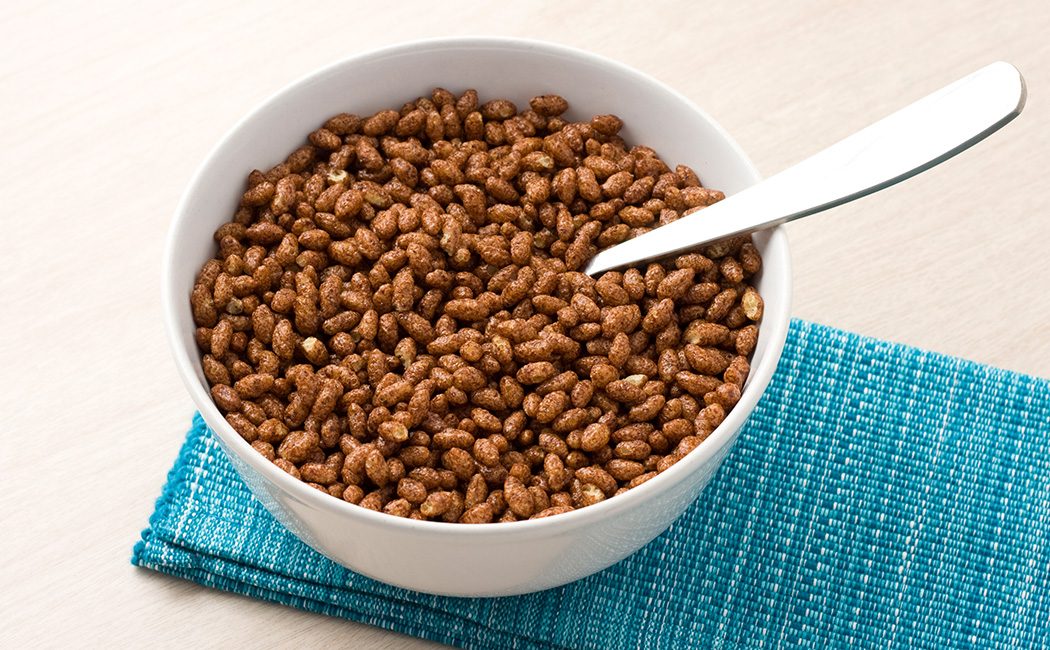
Facts about Cereal
Cow & Gate Banana Porridge 4-6 month old.
Owned by the giant food producer Danone, who has a market capitalisation of €50.8bn and annual sales revenues of around €25bn per year.
Banana Porridge 4-6 month old.
This product has a very high dairy content, Cow and Gate were found to have GMOs in some of their products, even when they said they were GMO-Free. Their banana porridge has 10g of sugar in a 25g serving. This may not seem like a lot of sugar, but it’s 3-4 sugar lumps, which is far too ‘high in sugar’ in my opinion for a baby.
Kelloggs
Kelloggs has a market capitalisation of $22.56bn with annual revenues of over $12bn.
Frosties Ingredients
Maize, Sugar, Barley Malt Flavouring, Salt.
Vitamin & Minerals
Vitamins B1, B2, B3, B12, Folic Acid, D3 and the mineral Iron. The number of nutrients is very small.
In a 100g of Frosties, there are 37g of sugar and total carbohydrate load of 87g. This does not include the lactose from milk.
Nutri-Grain Breakfast Bakes; Raisin 45g Bar
Ingredients
Cereals(35%)(Wheat Flour{19%}, Whole Rolled Oats{16%}), Glucose-Fructose Syrup, Raisins(11%), Apple Puree, Sugar, Sunflower Oil, Molasses, Emulsifiers(E475, E471, E472e, Soy Lecithin), Skimmed Milk Powder, Raising Agent(E500), Modified Starch, Cinnamon, Natural Flavouring, Stabiliser(Guar Gum), Acidity Regulator(Malic Acid), Antioxidant(E306),
Vitamin & Minerals
Niacin, Iron, Vitamin B6, Vitamin B2 (Riboflavin), Vitamin B1 (Thiamin), Folic Acid, Vitamin B12.
Each 45g bar contains 31g of total Carbs and 17g of sugar.
Alpen Original Muesli
Owned by Weetabix, who in turn are owned by U.S. food giant Post Holdings, worth around $8bn. Post bought Weetabix for about $1.8bn.
Ingredients
Whole Grain Wheat (39%), Wholegrain Rolled Oats (36%), Raisins (12%), Sugar, Skimmed Milk Powder, Milk Whey Powder, Roasted Sliced Nuts (2.5%) (Hazelnuts & Almonds), Salt.
A total of 66g of carbs and 21g of sugar per 100g.
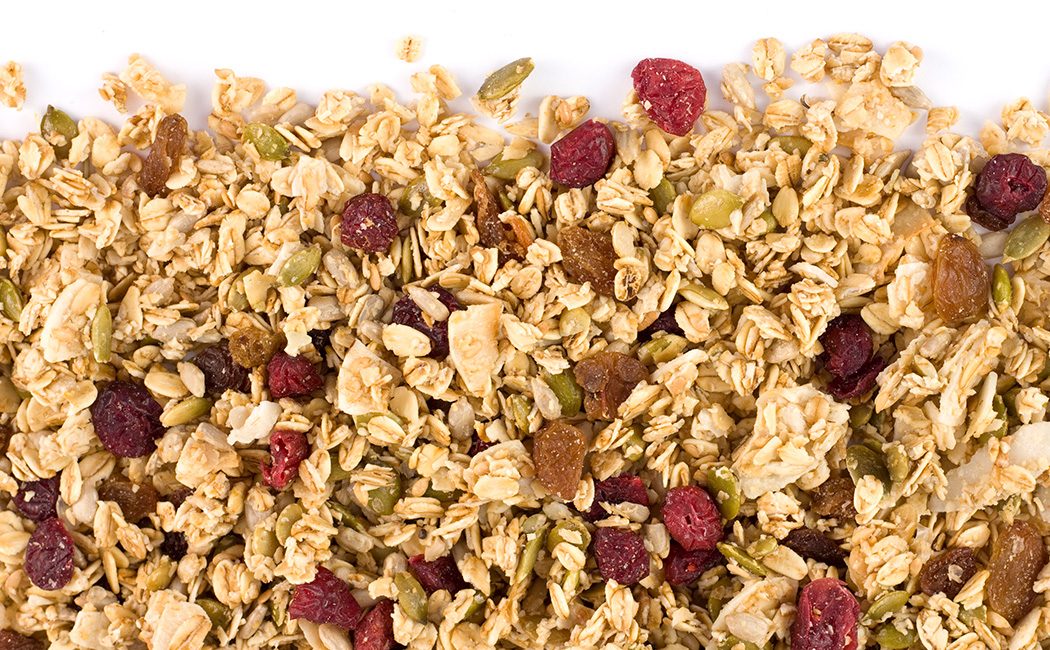
Is there really metal in cereal?
The word ‘fortified’ is used quite a bit in the manufacture of cereals, there is no doubt that vitamins and minerals are added, but how many ends up in the finished product is debatable. Also, the quality of the nutrients used is questionable.
Coca Cola and McDonald’s are often used as poster boys of bad health. But a bowl of cereal contains; high levels of sugar, that causes blood sugar spikes. The added Iron is actually ‘iron filings’, or food-grade iron filings.
The oxidative stress or oxidation these iron filings put on our system is worrying. Kids eat these breakfast cereals as a healthy start to the day when really they’re eating highly processed GMO foods that are also high in sugar. These are some of the same kids I see drinking high sugar energy drinks on their way to school.
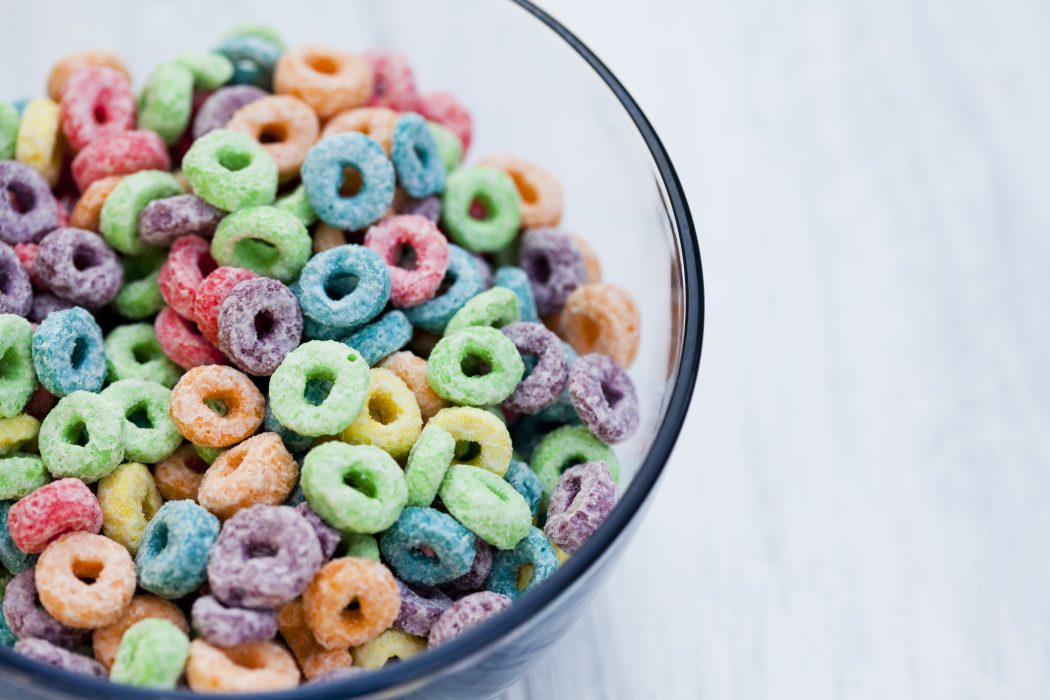
Is eating cereal for breakfast healthy?
As far back as 2003/4 researchers from the Consumer Association, found that big brand cereals contained too much sugar, salt and bad fats. With advice from the Food Standards Agency, researchers compared 100 popular cereals. 85 brands had high sugar contents, 40 had high salt and 9 had high fat, like hydrogenated trans fats. Some cereals had more salt than a bag of peanuts.
The worst offenders were the ones that were marketed to children, some of which were 40% sugar. All the major brands were named like, Nestle, Kellogg’s and Quaker.
If I was going to eat cereals it would probably be gluten-free organic oats, but even these cannot promise to be 100% gluten free. We run a strict Ketogenic diet that’s high in saturated fats, we obviously keep our carb intake very low. Diet is very individual in my opinion and experience dealing with our own food intolerances and allergies has shown this to be true.
We live in a world where we are told what to eat by the government health experts that are using outdated methods that are proven not to work. High sugar diets are not good for anyone. Proper testing via blood and DNA analysis is essential when choosing the correct diet.
Diets that improve sports performance may not be good for long term health. We should always be open to change and look at new things. But the modern human eats huge amounts of sugar, and breakfast cereals gets our day off to a bad start.
This is a normal day;
Spike our glucose levels with cereal first thing in the morning, which then drops through the floor by mid-morning, so we grab a quick sugar Kit Kat mid-morning to boost sugar levels back up.
Then a high carb Greggs Pasty for lunch washed down with a can of 7Up and a Grab Bag of GMO Walkers Crisps, followed by a mid-afternoon Haribo’s.
Then on the way home call in for a McStatin Quarter Pounder with large fries and plastic chicken nuggets, washed down with a refesheing Aspartame Diet Coke.
Sound about right? Then repeat.

